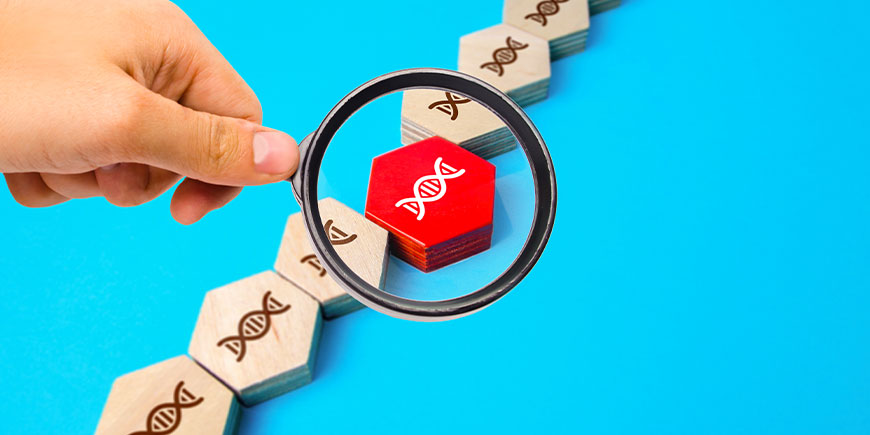Researchers at Google DeepMind have used artificial intelligence to predict whether mutations in human genes are likely to be harmful.
The AlphaMissense algorithm for predicting the effects of missense mutations in human DNA has been developed by artificial intelligence giant Google DeepMind.
The new tool could be very useful in the diagnosis and development of therapies, in particular for the treatment of rare diseases.
Amino acids and DNA mutations
The amino acids – the building blocks of proteins – are determined by the triplets of nucleotides – the building blocks of the genome.
If a genetic mutation alters these triplets (by replacing one base on the DNA strand with another), a different amino acid is inserted into the protein. This is called a missense mutation: the resulting protein may function differently than expected, or not at all.
Real implications
Such mutations are unpredictable and, until now, it has been very difficult to predict how they are going to turn out.
Most are harmless. However, some can be dangerous because they predispose to the development of diseases. These mutations cause genetic diseases such as cystic fibrosis and sickle cell anaemia.
Of more than 4 million observed missense variants, only an estimated 2% have been clinically classified as pathogenic or benign, while the vast majority of them are of unknown clinical significance.
A typical human has 9,000 such mutations throughout their genome. Fortunately, most of these are harmless.
The artificial intelligence
DeepMind researchers, led by Jun Cheng, developed the AlphaMissense algorithm using artificial intelligence.
Using knowledge from Alphafold (an AI that can quickly predict any structure a protein will take on from its amino acid sequence), it is able to ‘guess’ whether a mutated protein looks ‘natural’ or not; and in the latter case, it determines how harmful the mutation may be by assigning it a risk score.
«If we substitute a word from an English sentence, a person that is familiar with English can immediately see whether this word substitution will change the meaning of the sentence or not.» explains Jun Cheng of Google DeepMind.
AI training
AlphaMissense has been trained using DNA data from humans and closely related primates to identify common missense mutations, which are likely to be benign, and distinguish them from rarer, potentially harmful ones. The algorithm also studied millions of protein sequences to understand the ‘language’ of healthy proteins.
Once trained, the algorithm could evaluate missense mutations by generating a score indicating their disease-causing potential.
Results and future prospects
AlphaMissense was able to analyse and classify 89% of the 71 million missense mutations, predicting that 57% of them could be harmless and 32% could cause disease (with the remainder uncertain).
Experts are quick to point out that the system is still a work in progress and that it will be some time before it is clinically reliable. But the use of artificial intelligence could have a significant impact on the diagnosis and development of therapies for genetic diseases, especially rare ones.
Sources and Data
- Questa mutazione genetica è pericolosa? Te lo dice l’intelligenza artificiale – Focus
- Accurate proteome-wide missense variant effect prediction with AlphaMissense – Science


